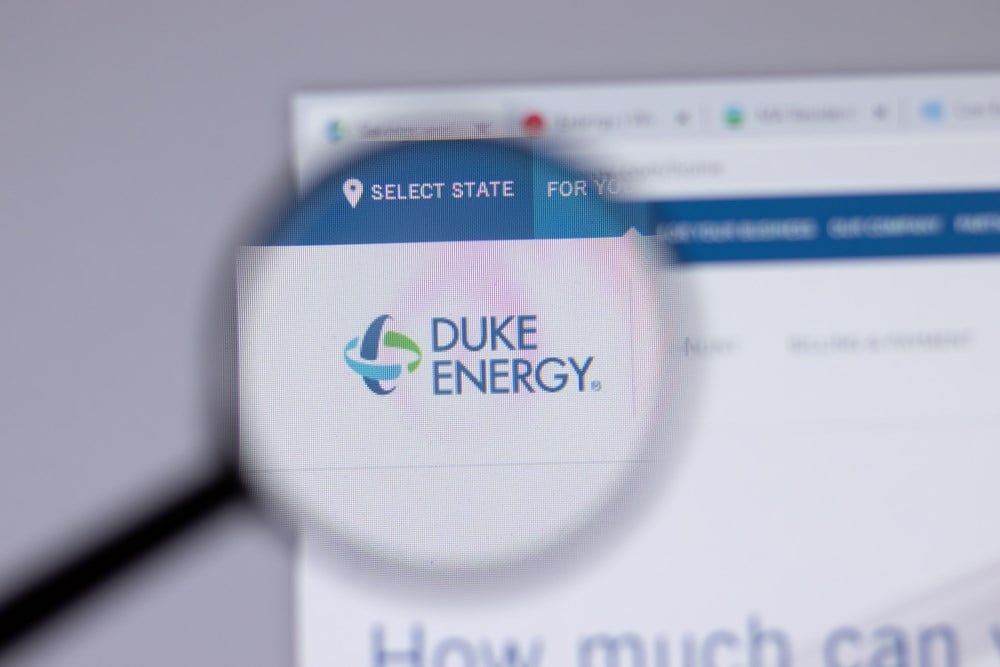
Duke Energy (NYSE: DUK) reported its first quarter 2023 earnings on Tuesday, with the stock price showing little to no movement in the pre-market session. Duke has been a historical 'haven' during market volatility cycles, often caused by the same dynamics investors experience today due to rising interest rates.
One of the reasons some flock to this defensive company in a defensive sector is its pricing power ability. As inflation showed its ugly face through 2022, Duke's financials will show that the business grew its revenue by an exceeding 16.8%, from 5.4% in 2021 (a year when inflation hit bottom levels).
Despite being a time-tested business, Duke operates in an industry undergoing some disruption from the 'renewables' segment of energy provision. In addition, natural gas and coal energy production is slightly challenged by solar and others. This provides the company with a long-term growth opportunity to build upon its stable stream of cash flows, allowing investors to gain exposure to the best of both worlds. As stated in the earnings presentation, management cases propose an approximate 10% risk-adjusted return to shareholders.
A Diversified Future
Duke Energy reported adjusted earnings per share of $1.20, representing a nearly 7% decline from $1.29 a year prior. This decline comes amid adverse weather conditions experienced in the first quarter and increased interest expenses as the FED sustains its hike cycle. Despite a 7% decline in earnings, there is no apparent volatility in the pre-market session showcasing concerns, speaking to investors' familiarity with this company's cyclicality.
With Duke's electric grid volume growing at a total 1.7% rate, the company's management knows a new strategy is needed to kickstart growth. As a result, out of a total of $36 billion of capital expenditures planned between 2023-2027, a majority will be invested in upgrading the existing grid and enabling EV and solar adoption. A secondary section of capital expenditures will go into generation transition, focusing on transmission investments to integrate renewable energy sources.
With Climate activists like Bill Gates stating, 'Nuclear energy, if we do it right, will help us solve our climate goals.' there is growing pressure on the American energy conglomerates to hop on this wave. For this and many other reasons, Duke Energy owns the largest regulated nuclear fleet in the U.S.
The year 2022 marked the twenty-fourth consecutive year for Duke's nuclear energy fleet capacity factor greater than 90%. This high capacity utilization allows the company to achieve the second-most efficient production in the nation, measured as nuclear production expense divided by nuclear generation.
To showcase its commitment to carbon emissions reduction, Duke has made significant progress in its Indiana energy transition initiative. The Indiana Integrated Resource Plan (IRP), updated in February 2023, will reduce carbon emissions in Indiana facilities by 60% in 2030 and 90% in 2040; these reductions are compared to initial emission levels from 2005.
Income, Growth Potential
Management is targeting a long-term risk-adjusted shareholder return of 10%, as a combination of dividend yields and growth potential within the energy transition allows for heightened renewable energy capacity. However, this proposal may have gotten little traction from Duke analyst ratings. Today, the stock is only assigned a 6.77% upside. Management expects investors to be paid a target 4.0% dividend yield with a long-term growth commitment, allowing for a target 5.7% growth in earnings per share over the long run.
Considering a current 4.10% Duke dividend yield, aligning with management's long-term target commitment, may suggest the stock is 'fairly' valued. To keep yields in perspective, the 2013-2018 period showcased a dividend yield of 4.0% to 5.0% for the average, suggesting that the stock may be fairly valued as of today's yield.
A bullish case is raised, considering that management is looking to increase the dividend payout and provide comprehensive guidance for 2023. Investors can expect 2023 adjusted earnings per share in the range of $5.55 to $5.75. Historically speaking, Duke Energy stock has traded between price-to-earnings ratios of 19-21x, implying that the stock could reach a price range of $105 to $120 per share.
Considering Duke's chart shows the stock reached a high price of $116.33 in April of 2022, these valuation ranges may be within the possibility for investors. Moreover, as the push for renewable energy sources gets underway, with a possible focus on nuclear, Duke could be positioned to earn a premium to its earnings multiple, expanding these valuation ranges further.






